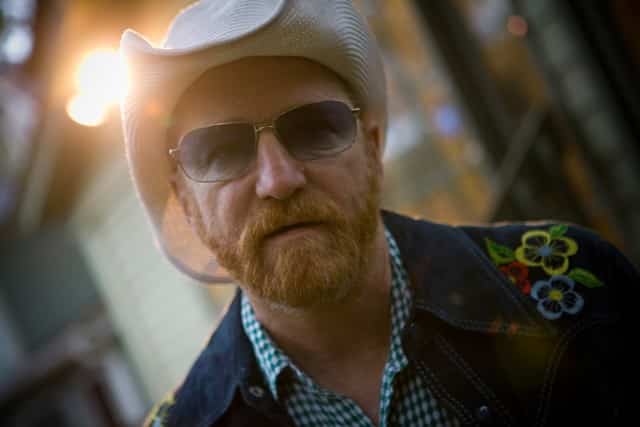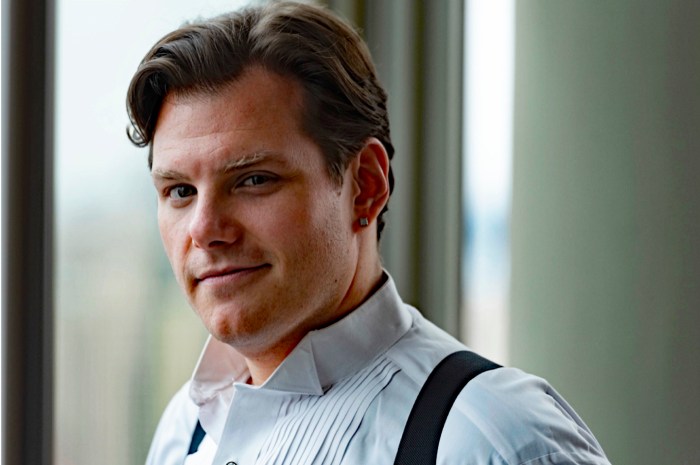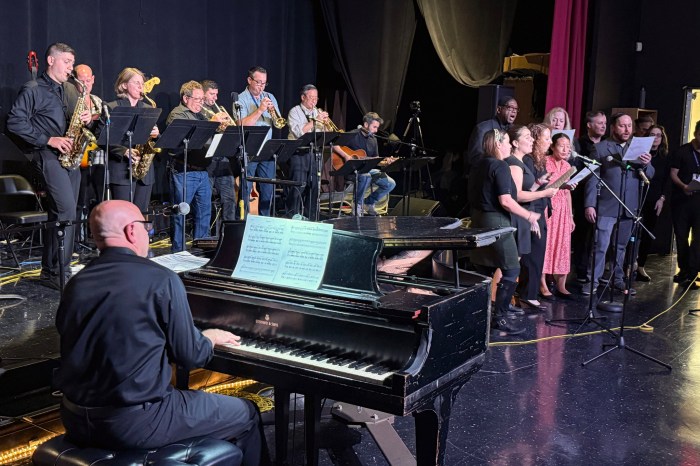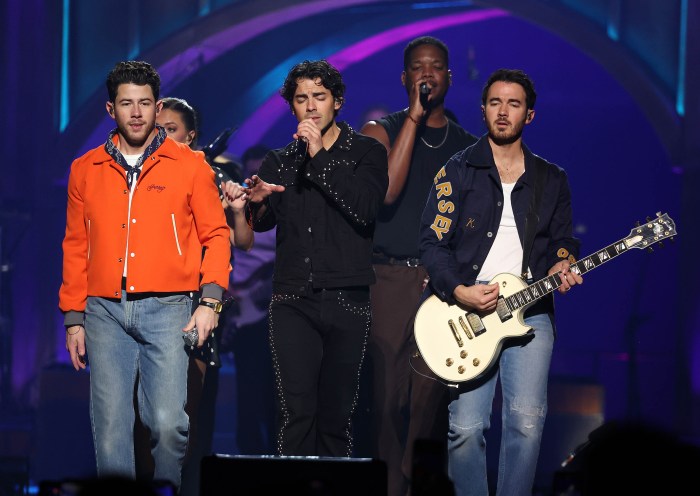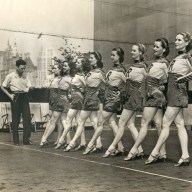How the indie rocker became a music rights advocate

David Lowery is a smart guy. Most folks know him as the founding member of indie rock icons Camper Van Beethoven (CVB) and Americana stalwarts Cracker. In addition to this part of Lowery’s background, he is also a trained mathematician who earned a PhD at the University of Georgia, where he also teaches a number of classes in the school’s music business program. There was even a point when he worked as quant—a derivatives trader and financial analyst, the kind of profession that leads you to believe these guys are Wall Street rock stars according to how they’re portrayed in Billions. And while the Texas native has actually been in the position of being a rock star in the truest definition of the word, his work fighting for the rights of artists in the face of streaming entities is where he’s made his largest mark in recent years.
Back in 2014, he filed a class action suit against Spotify, alongside singer-songwriter Melissa Ferrick, for $200 million that found the streaming giant agreeing to pay $43.4 million of unpaid mechanical licenses into a fund that will be dispersed once lawyers figure out who qualifies and what amounts get paid out. In being a vocal critic of this latest music industry model, Lowery has been accused of being anti-technology. As someone who has been cast more in the role of an advocate for artists’ rights, it’s an accusation he disputes.
 “I don’t really have any issue with streaming other than pay. A lot of people say I’m opposed to streaming. If the railroad workers strike against the railroad, they’re not against railroads—it’s a pay dispute. And that’s largely what’s been going on,” he explained. “Music was the canary in the coal mine, because our files are so small, so you can distribute without a license. We’re always at the forefront of that. There are a couple of ways that you can reform music licensing with digital services in the United States. You can get legislative solutions, which is extremely difficult, although we’ve made some progress on that. Or you can go to the courts, and the opinion of the courts becomes the law. I don’t want to give everybody a legal lesson here. But we’re a common-law country, so the opinion of the courts acts as law. The problem with streaming wasn’t just that our pay was low, but a lot of songwriters weren’t getting paid. So the class action lawsuit did exactly what we intended, which was to force a settlement whereby one streaming service, which the others now follow, has to make a much better effort to pay artists. And the Music Modernization Act wound up getting enacted as a result of that class action lawsuit, which came up with a different methodology of licensing songs that is probably fairer to songwriters and will go into effect in three years.”
“I don’t really have any issue with streaming other than pay. A lot of people say I’m opposed to streaming. If the railroad workers strike against the railroad, they’re not against railroads—it’s a pay dispute. And that’s largely what’s been going on,” he explained. “Music was the canary in the coal mine, because our files are so small, so you can distribute without a license. We’re always at the forefront of that. There are a couple of ways that you can reform music licensing with digital services in the United States. You can get legislative solutions, which is extremely difficult, although we’ve made some progress on that. Or you can go to the courts, and the opinion of the courts becomes the law. I don’t want to give everybody a legal lesson here. But we’re a common-law country, so the opinion of the courts acts as law. The problem with streaming wasn’t just that our pay was low, but a lot of songwriters weren’t getting paid. So the class action lawsuit did exactly what we intended, which was to force a settlement whereby one streaming service, which the others now follow, has to make a much better effort to pay artists. And the Music Modernization Act wound up getting enacted as a result of that class action lawsuit, which came up with a different methodology of licensing songs that is probably fairer to songwriters and will go into effect in three years.”
Click here to read David Lowery’s response to an NPR intern on the evils of file sharing.
For the meantime, Lowery will be going back to his day job, in this case, going out on the road and doing double duty with Cracker and CVB splitting a bill. With 2014 being the last time either band released material, via From Berkeley to Bakersfield and El Camino Real respectively, fans can expect a retrospective set list to dictate that evening’s slate of live music.

“There’s really not a current record right now, so we’re trying to pull a couple of things off of each era of each band. We’ve kind of reintegrated the lineups a lot. So it’s Jonathan Segel, who normally plays violin and guitar in Camper Van Beethoven, playing keyboards with Cracker. And Cracker’s drummer is playing with Camper,” he said. “Although neither band has been considered a jam-band, we have a lot in common with that scene. We’re a little bit like that and so it lets different incarnations of each song come out a little bit more. So it’s fun for us. Jonathan has also been living in Sweden and he’s also been playing with all these space rock collectives. I can tell it but I don’t know if the audience can tell it. We’re a little bit more Euro space-rock this tour.”
Click here to find out David Lowery’s favorite Camper Van Beethoven/Cracker covers
The son of a career Air Force father, Lowery spent his childhood growing up in different locales and being exposed to numerous musical genres. Having first picked up a guitar at 14 and later switching to bass, these wide-ranging influences shaped CVB’s absurdist musical approach when it was founded in 1983.

“Camper grew up in a surf town that has its own musical subculture. Living in Santa Cruz, the punk and surf thing was really close together. There was a lot of that in the ’80s and there was a lot of surf-infused punk and stuff like that. A lot of Camper’s exoticism came out of surf and I didn’t realize this at the time,” he said. “Camper really did have this approach where rock has always been a mongrel. So we decided we were going to do the eclectic thing because we believed the spirit of rock is that there are no rules. In a weird way, even though we were seen as these crazy outsiders doing this crazy stuff, we thought we were firmly within the mainstream of the idea of rock.”
While songs like “Take the Skinheads Bowling” and “ZZ Top Goes to Egypt” made CVB college radio darlings and a minor hit cover of Status Quo’s “Pictures of Matchstick Men” gave them a scrap of commercial success, the band went on a 14-year hiatus, during which time Lowery tapped longtime buddy Johnny Hickman to create Cracker. Founded in 1990, this project started out having a sound that would later be deemed Americana. It was a bold move, given that a new musical movement was emerging out of the Pacific Northwest.
https://www.youtube.com/watch?v=gKfMlQ7KWFE
“We lucked out and ‘Teen Angst’ fit in real well with the rock radio format at the time even though it was strictly grunge,” Lowery recalled. “But if you listen to that album, a couple of those songs don’t have any kind of alternative vibe. They’re country-rock/southern rock.”
With the music industry in such a state of flux, Dr. Lowery has spent his recent years in academia, teaching classes about business fundamentals as applied to the music industry.
“It’s like the Freakanomics of the music industry,” Lowery said.
For the former quant-turned-professor, it’s really not that far removed from what he does whenever he get behind the mic at a concert.
“To me, it’s the same thing as doing a show. You’ve got to plan what you’re going to do, make a set list, get up in front of people and keep their attention for an hour and 15 minutes,” he said. “The main difference is that it’s in a lecture class of about 250 people that are considerably younger. And they’re not drunk or high. Or at least as far as I know.”
Cracker and Camper Van Beethoven will be appearing on Jan. 20 at Sony Hall, 235 W. 46th St., NYC. For more information, visit www.sonyhall.com or call 212-997-5123.




